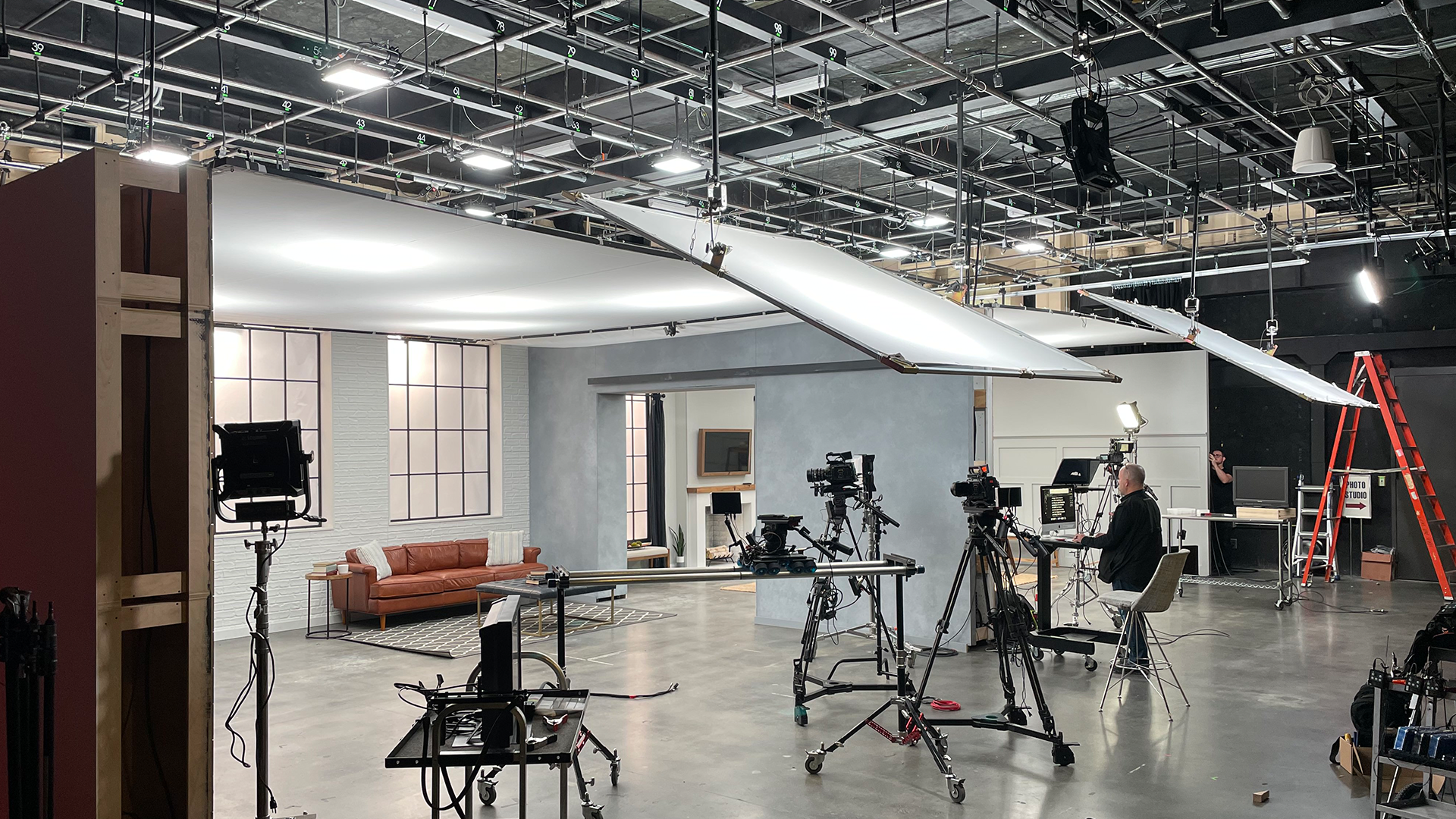Plaid Turtle Taps Litepanels to Deliver Cinematic Experience to Live Events
Making the change to LEDs from tungsten saved us money and offered environmental advantages as well

The professional video industry's #1 source for news, trends and product and tech information. Sign up below.
You are now subscribed
Your newsletter sign-up was successful
ATLANTA—We started Plaid Turtle during the pandemic when organizations were forced to come up with a virtual event model and were unable to meet in person. Having been in the industry for a combined 50+ years and having worked together for more than two decades on various film and live event productions, we pooled our resources, knowledge and relationships to launch our new company, with the goal of producing virtual learning events that feel like a cinematic—rather than a virtual—experience.
After producing some events and re-engineering some systems within a client’s studio, we were asked to manage the equipment, labor and calendaring for the space—but we quickly realized that lighting needed a major overhaul. The studio had around 70 traditional lighting fixtures ranging from 750-2kW each, and while not all of the fixtures were in service, the age and color temperature shifting made it extremely difficult to produce projects of a consistent quality.
Moving to LED
As the end of the year approached, the client approved funds from a canceled project to replace the traditional fixtures with LED. Having worked with Litepanels and really liking the Gemini 2x1 Soft and Gemini 1x1 Soft lights, we called for some advice on the fixtures and scale for the space.
We were connected with Litepanels co-founder and Gaffer, Pat Grosswendt, who recommended the Gemini 1x1 Hard. In our initial designs, we anticipated using eight fixtures above each 20x20, but after talking with Pat, he was confident we could accomplish our goals with five. Taking budget into consideration, we knew we could afford 20 of the 1x1 Hard fixtures, so we built designs ranging from 5-8 fixtures per 20x20.
We knew that on paper, the Gemini 1x1 Hard panels produce 3000 lux @10ft/3m of white light, and without diffusion it is 20% more powerful than a 200W HMI. When we got the first five up in the grid without diffusion and turned one on, the result was truly staggering.
Comfortable for the Talent
With the output of the Gemini 1x1 Hard, the budget for 20 fixtures was enough to light the entire studio. We placed five above each set diffused through a 20x20, two butterflied as key lights with 8x8 diffusion, one for each of the five set windows, and three on rolling stands to use wherever fill is needed.
With the lighting up full, we can open our iris all the way for beautifully shallow depth-of-field, with the lighting level still very comfortable for the talent. And although we are often on-site to manage productions, we also needed to offer a turnkey solution for other occasions. Utilizing the built in DMX capabilities of the Gemini 1x1 Hards, we were able to tie them all together and set up scenes, so at the press of a button, our client can have the studio up and ready for shooting.
The professional video industry's #1 source for news, trends and product and tech information. Sign up below.
Finally, making the change to LEDs from tungsten provided some environmental advantages as well. We were able to reduce heat and noise level output, making the sets even more comfortable for everyone. The Gemini panels also deliver huge savings in energy consumption.
Despite its impressive light output, the 13.25-pound (6kg) 1x1 panel has a nominal power draw of just 200W. With the traditional fixtures, we were drawing over 70,000W while operating the studio, but now, running 20 Gemini 1x1 Hard lights, we are only drawing 4,000W.
The versatility and power of the Litepanels Gemini 1x1 Hard made it the perfect solution for us and our client.
More information is available at www.litepanels.com/en
Brian Cole is a producer with Plaid Turtle and has extensive experience in building live in-person, satellite broadcast, and streaming events from scratch, as well as producing and managing narrative and commercial films, podcasts, physical and digital products, and online content. He’s also consulted with entrepreneurs, churches, and corporations, providing support for production-based systems.
